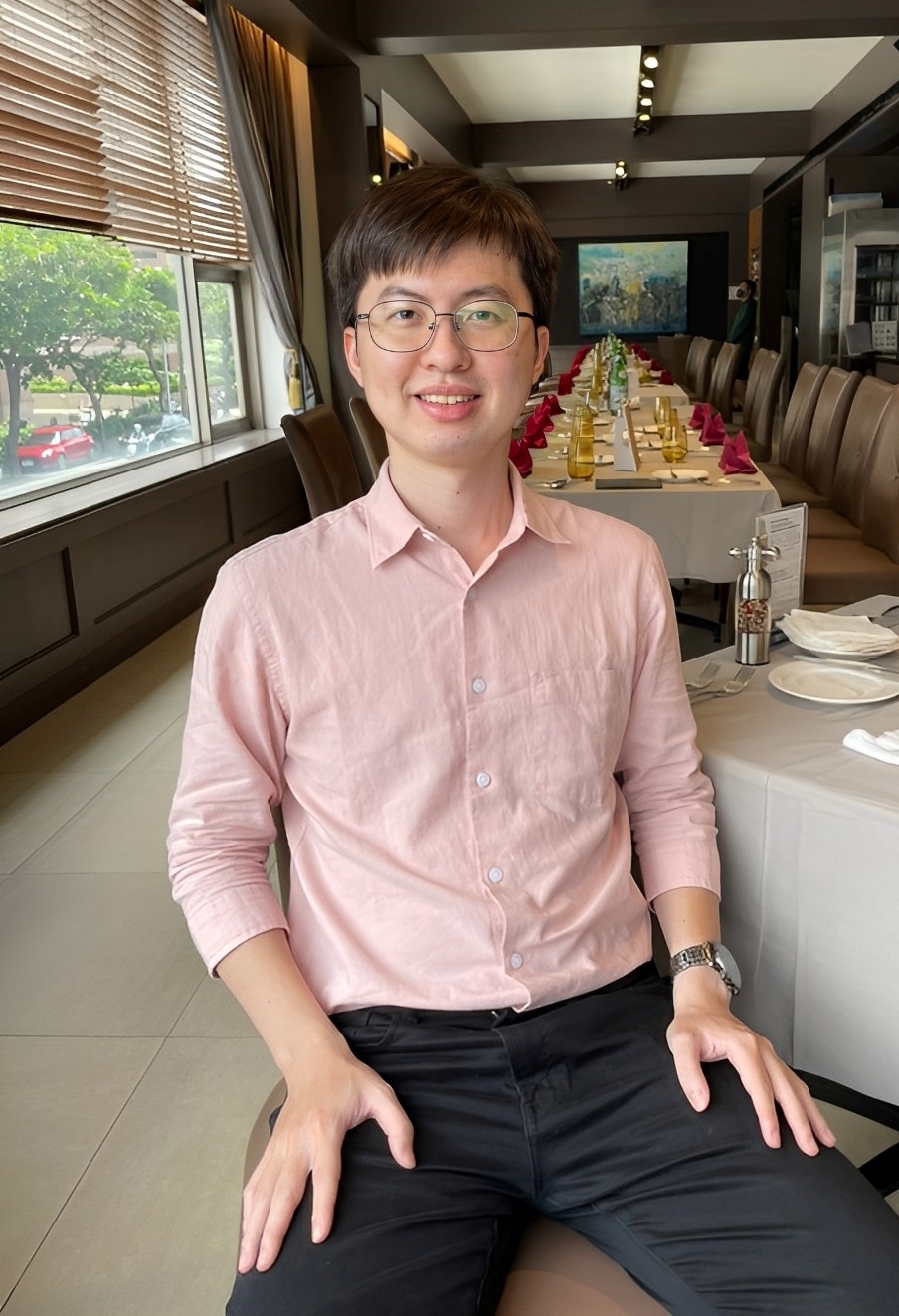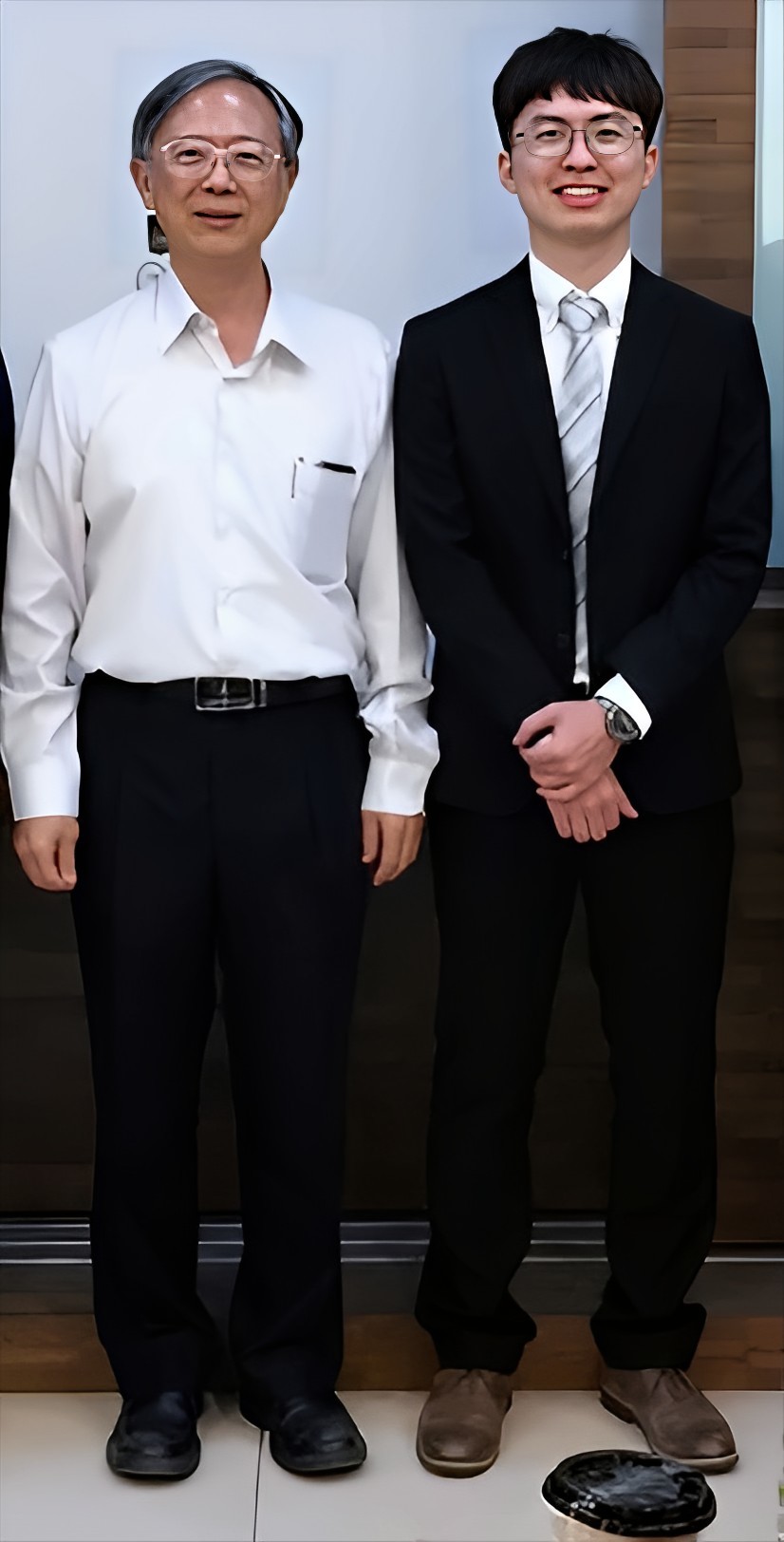Chien-Lung Liang: Your Attitude Defines Your Arena; A Clear Recognition of Self-orientation and Personal Interest is the Prerequisite of Success
Graduated from the Department of Materials Science and Engineering of National Cheng Kung University (NCKU), Dr. Chien-Lung Liang is currently a postdoctoral fellow under Kwang-Lung Lin, Chair Professor in the Department of Materials Science and Engineering at NCKU. Dr. Liang is also the winner of the 2021 Academic Research Award for Postdoctoral Research by the Ministry of Science and Technology. Dr. Liang humbly expressed his gratitude to Professor Kwang-Lung Lin for his guidance, his family for their support, and the university for providing a conducive research environment. The motto used by Liang Jian-long to motivate himself is "The lower you crouch, the higher you can jump." He believes that in today's social environment, the only way to make the most of one's talents is to find one's position and use one's talents where they are most appropriate. He is very grateful to the committee for their recognition.
 |
Materials Science Research: A Key Technology For Achieving Sustainable Development
Chien-Lung Liang pointed out that his award-winning paper, "Comprehensive Research on Electromigration of Pure Tin Materials: The Effects of Crystallinity, Microstructures, and Electrical Properties" is an in-depth exploration of previous research results of a project initiated by the Ministry of Science and Technology, which focused on the institu material reaction behavior of pure tin materials during electromigration. He used TEM and Synchrotron XRD to observe the changes in crystallinity during the electromigration process. The results show that the electrowetting process generates high differential row density, which corresponds to the electrodisruption phenomenon, and further improves the resistance of the material. This study has outstanding academic value and contribution: in addition to analyzing and understanding the real-time lattice and property changes of the material during the electrification process, it also identified another mechanism of "electrification-induced resistance enhancement" in addition to Grain reorientation and hole formation.
Liang said that his recent research focuses on "the theoretical basis of Athermal electron wind force applied to material microstructures and property control". As a novel theory of electro-treatment of materials, this technology can be used to directly anneal materials by joule heat and non-thermal electron wind force, partially replacing the traditional energy-consuming metal heat treatment, to improve treatment efficiency and reduce energy consumption. With high application value for achieving sustainable development, this technology can help industries to achieve the goal of sustainable development and green manufacturing and responds to the United Nations SDGs on environmental protection and sustainable development issues. Liang Jian-long hopes that his research will contribute to global environmental protection.
NCKU is Not Only My Alma Mater That Nurtured Me, But Also the Starting Point of My Academic Research
Dr. Liang further pointed out that his academic background and academic achievements are bigger contributors to his winning of the award than the content of his research. “After receiving my bachelor's degree from NCKU, I continued to my master's, doctoral, and now postdoctoral research here," said Dr. Liang, “For more than 10 years, I have always benefited from NCKU's academic strength, good reputation and research atmosphere, comprehensive trainings during my master’s, doctoral and post-doctoral years, as well as rich research resources, all of which gave me an advantage in competition with my peers, and the honor of winning this award. ”
Liang Jian-long stated that being the representative winner of the "Outstanding Postdoctoral Award" for the Chemical Materials Group in the "Grand Review Doctoral and Postdoctoral Research Competition" held by NCKU last year is undoubtedly an important driver for him to compete for the 2021 Academic Research Award for Postdoctoral Research by the Ministry of Science and Technology.
 |
Liang said that during his university years, he participated in the TSMC's Elite Seed Camp, during which he listened to industry experts share their advanced experiences, which made him decide to pursue a PhD after receiving his master's degree and aspire to engage in scientific research and make contributions to the industry. He mentioned that he was lucky to meet Mr. Lin Kwang-lung, who not only guided him to start his academic career, but also taught him the right way to do things. It was his supervisor's guidance and encouragement that allowed him to dream of becoming an excellent academic in the future, to be able to teach in university, to continue to enjoy solving problems, and to pass on his knowledge and attitude towards the world to the next generation. Dr. Liang said he was very fortunate that under the cultivation of Mr. Lin, he successfully obtained a teaching position at NCKU and will serve as an assistant professor in the Department of Materials Science and Engineering at NTUST, starting a new chapter in his life.
To Become an Academic Researcher, One Must Receive Postdoctoral Training Which is Professional and Diversified
Liang said that the current academic world is so competitive that doctoral graduates cannot be hired as faculty immediately, but must receive in-depth training as a postdoctoral fellow. In addition to receiving more professional academic training, understanding the operation of the academic ecology, and assisting the supervising faculty in dealing with academically related matters and conducting academic research, postdoctoral fellows are also required to be role models for laboratory students by using their own life experience to help them find their future career direction. He often tells younger students to approach their dreams in a forward-looking way, and consider all aspects, such as the reputation of the school they are applying to, the workplace, and the nature and development potential of the target job. Liang Jian-long concluded that the task of postdoctoral fellows is not only to conduct research and understand the academic environment, but more importantly, to assist the supervisor to deal with research and teaching matters, and to pass on experience to younger students.
My Advice Is: Follow Your Heart and Just Do It!
Liang stated that independent ideas and opinions are crucial to life, and one must know one’s own interests and ambitions. “For example, if you want to work in the field of materials, you must develop problem-solving skills, because most graduates in materials will become process or R&D engineers in the future. The former must be excellent at problem solving, with keen observation and highly professional knowledge. If you want to work as an R&D engineer, you need to think creatively and cost-effectively in addition to your expertise.” “If you want to engage in academic research, whether in research institutions or universities,” Liang Jian-long said, “you must improve your ability to do academic research ability and to publish articles, sharpen your English language competence, and cultivate your international perspective, seize the opportunity to be an exchange scholar abroad or to participate in international seminars, from which to find opportunities.”







